30 Common Words You’re Using All Wrong

Language is a funny thing. You come up with a word in order to be able to communicate with people, but over time, the meaning evolves—or gets totally butchered. If enough people use the word in the wrong way, its meaning may change forever.
Take the word “awful,” for example. It’s initial meaning was “inspiring reverential wonder or fear,” as it’s based on the combination of the words “awe” and “full.” At some point, enough people started to use the word to mean the exact opposite that its original definition became archaic. Terrific is another great example. Its Latin roots are the same as “terror,” so its meaning for a long time was “to inspire fear.” So many people used it incorrectly that it began to mean the exact opposite.
The words below, which people commonly misuse, have not yet suffered that same fate, but they could if we aren’t careful. So, go ahead, grammar police your friends for the greater good. And for more on ways we’re mangling our language, check out the 25 Most Commonly Misspelled Words in America.
1
Peruse

What people think it means: To skim.
What it actually means: To read thoroughly or examine at length.
Example: “I perused your legal brief last night and I had an issue with an item on page 78.”
2
Factoid

What people think it means: a little fact; a small, interesting piece of trivia.
What it actually means: #fakenews. It was coined by Norman Mailer in 1973 to describe false information that had been printed so many times it became accepted as fact.
Example: “The idea that you need to sweat in order to get a good workout is a total factoid.” And for more fun facts about our language, don’t miss these 30 Hilarious Words for Everyday Problems.
3
Irregardless

What people think it means: Regardless, which is to say “in spite of present circumstances.”
What it actually means: it’s not a real word, even though people have been using it to mean “regardless’ since the 1700s.”
Example: “Regardless of what happens next, I’m happy we met.” And for more great word lessons, here are the 30 Words You Won’t Understand If You’re Over 30.
4
Literally

What people think it means: Figuratively, which is the exact opposite. So people say, “I’m literally dying from laughter,” to emphasize how funny they think something is, when, in fact, they are not actually dying.
What it actually means: In a literal manner or sense; precisely or exactly are synonyms.
Example: “I literally received a hundred emails today. I’m not exaggerating.”
5
Entitled

What people think it means: the title of a book or TV show, as in “Julian Fellowes is the creator of a British series entitled Downton Abbey.”
What it actually means: having, or believing you have, the right to something. People use this word to mean “privileged,” and that’s accurate. But they also use it when they should just be using the word “titled” instead.
Example: “Julian Fellowes is the creator of a British series titled Downton Abbey.” For more on the intersection of entitlement and language, here are the 9 Words British Royals Never Say.
6
Nauseous

What people think it means: Nauseated; sick, as if you’re about to throw up.
What it actually means: Nausea-inducing; an adjective to describe something that will make you feel sick.
Example: “Cigarettes are so nauseous; they aways make me feel nauseated.” And for more great words, here are the 30 Words That Will Make You Sound Instantly Smarter.
7
Poisonous

What people think it means: something that could kill you if you eat it or if it bites you.
What it actually means: This word is used synonymously with “venomous” even though the meanings are different. Something that’s poisonous could be fatal if you eat it. Something that’s venomous could kill you only if it bites you.
Example: “Snow White’s apple was poisonous. The Inland Taipan is one of the most venomous snakes in the world.”
8
Ironic
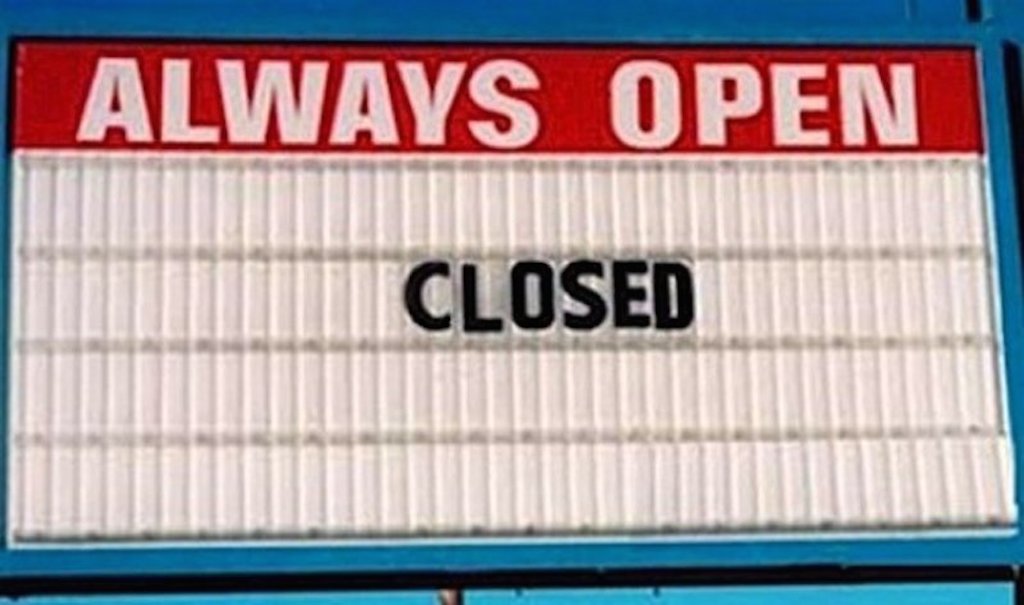
What people think it means: when something bad happens, famously popularized by Alanis Morissette’s 1995 hit song, “Ironic.”
What it actually means: Happening in the opposite way to what is expected, and typically causing wry amusement because of this.
Example: “I realize it’s ironic that someone who hates to read became a bestselling author.” And for more on the English language, here are the 50 Things Single People Wish You’d Stop Saying!
9
Infamous
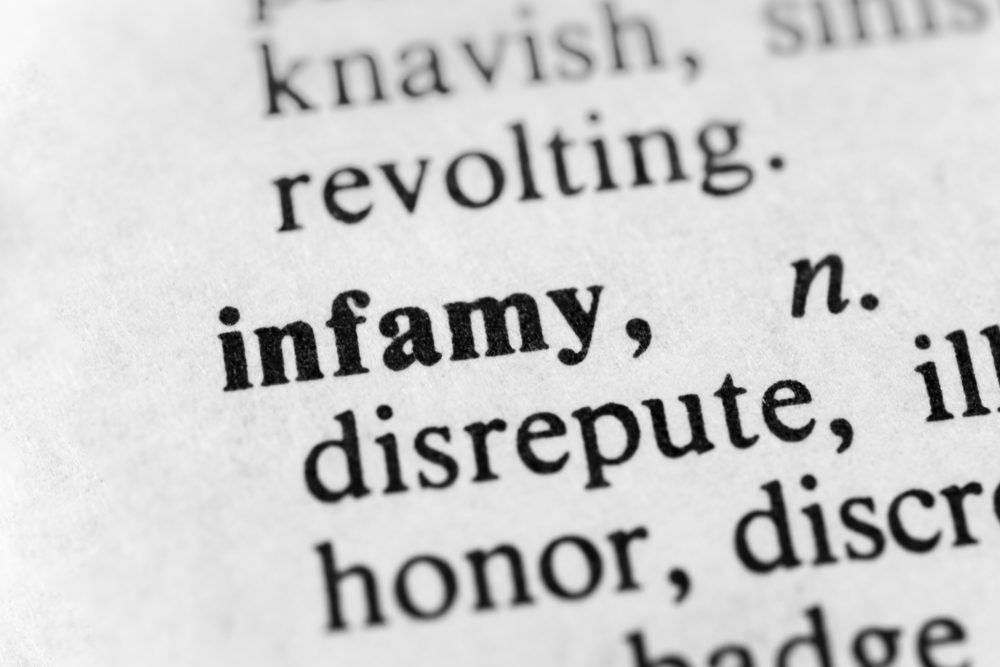
What people think it means: The same as famous.
What it actually means: notorious; well-known for a very bad reason.
Example: “Carl is an infamously terrible speller. Everyone knows they have to proofread his letters before sending them out.” And for more on infamy, be sure to peruse the 50 Craziest Celebrity Facts You Won’t Believe Are True.
10
Good
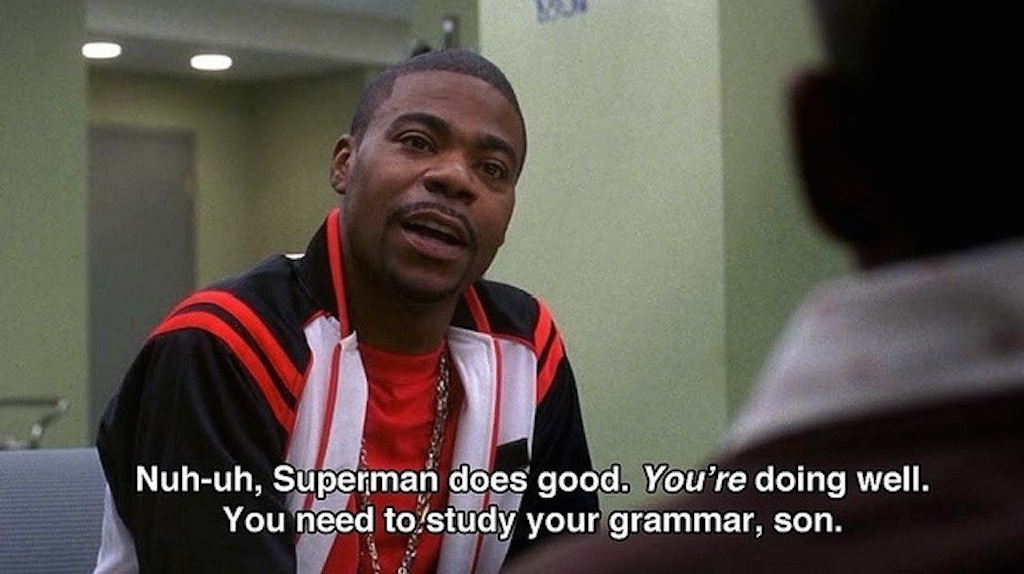
What people think it means: A synonym to “well.” As in, “How are you doing?” “I’m doing well/good.”
What it actually means: as a noun, it means something that is morally righteous.
Example: On the show 30 Rock, Tracy Jordan asks someone who considers himself very erudite, “How you doin’ over there?” and he responds “I’m doin’ good,” to which Jordan replies, “Nuh-uh. Superman does good. You doin’ well.”
11
Effect

What people think it means: to impact or to change.
What it actually means: people get effect, which is a noun, confused with “affect” which is a verb. The easiest way to remember the difference is that “affect” creates change whereas “effect is the result.”
Example: “I can’t deny that what she said affected me very deeply. The effect it had on my life was profound.” And for some things you definitely shouldn’t say, here are the 40 Words No One Over 40 Should Ever Use.
12
Further

What people think it means: a physical distance.
What it actually means: whereas “farther” relates to a physical distance, “further” refers to a metaphorical one.
Example: “”If I have seen further than others, it is by standing upon the shoulders of giants.” – Isaac Newton.
13
Moot
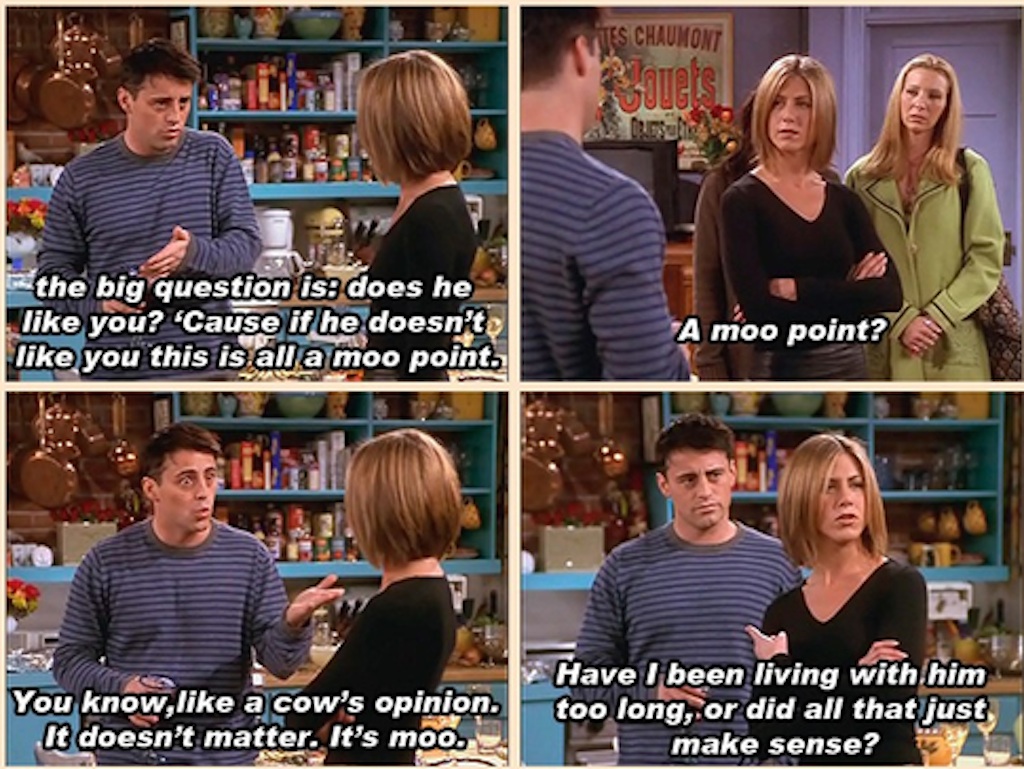
What people think it means: mute; as in, turning off the volume.
What it actually means: Subject to debate, dispute, or uncertainty, and typically not admitting of a final decision.
Example: “That’s a completely moot point. The decision has already been made.” And for more things you shouldn’t say, here are 40 Words No Man Over 40 Should Ever Say.
14
Travesty

What people think it means: tragedy; something that needlessly causes great suffering or mass destruction.
What it actually means: a mockery or parody of something that’s supposed to be serious.
Example: “This entire trial has been a travesty of justice.”
15
Ultimate

What people think it means: the best of all.
What it actually means: as a noun, it can be used to describe the best of something (“Ralph Lauren is the ultimate in luxury polo wear”), but, as an adjective, it denotes the last item on a list.
Example: “The ultimate thing that we have to do, once we’ve got the bread and milk, is buy the eggs.”
16
Conversate

What people think it means: To converse; to carry on a conversation.
What it actually means: this is not a real word.
Example: “May we adjourn to the dining room to conversate further?” “No, because that’s not a real thing. Did you mean converse?” And for more bogus knowledge, here are the 40 Things You Learned in the 20th Century That Are Flat-Out Wrong Today.
17
Bemused

What people think it means: a cheeky way of saying “amused.”
What it actually means: Puzzle, confused, or bewildered.
Example: “A bemused expression came over her face when I asked her if she wanted to conversate.”
18
Compelled

What people think it means: to feel strongly that you want to do something.
What it actually means: to be forced to do something whether you want to or not.
Example: “Giving oath compels people to provide an honest testimony in court.”
19
Redundant

What people think it means: repetitive.
What it actually means: Not useful; superfluous.
Example: “That’s redundant to the point. Let’s get back to the main argument.”
20
Enormity

What people think it means: extremely big.
What it actually means: extremely bad or morally wrong; a grave crime or sin.
Example: “Only when we saw the blood on our hands in the morning did we fully grasp the enormity of what we had done.”
Fortuitous

What people think it means: very good luck, most often used when saying, “How fortuitous is was for us to meet!” to indicate that good luck brought you together.
What it actually means: In reality, “fortuitous” just means “by chance.” It could be good, or it could be bad.
Example: “I didn’t plan for the ball to hit that woman just as she was crossing the street. It was fortuitous.”
22
Plethora

What people think it means: a lot of something, usually in a good way.
What it actually means: too much.
Example: “The plethora of dating options nowadays make it impossible to choose anyone at all.”
23
Hung

What people think it means: the same as hanged.
What it actually means: to suspend or be suspended from above with the lower part dangling free.
Example: “I hung a notice up on the door after the prisoner had been hanged.”
24
Tortuous

What people think it means: an adjective for torture.
What it actually means: twisting or winding.
Example: “It was torturous driving through the tortuous mountain rode in the middle of the night.”
25
Regularly
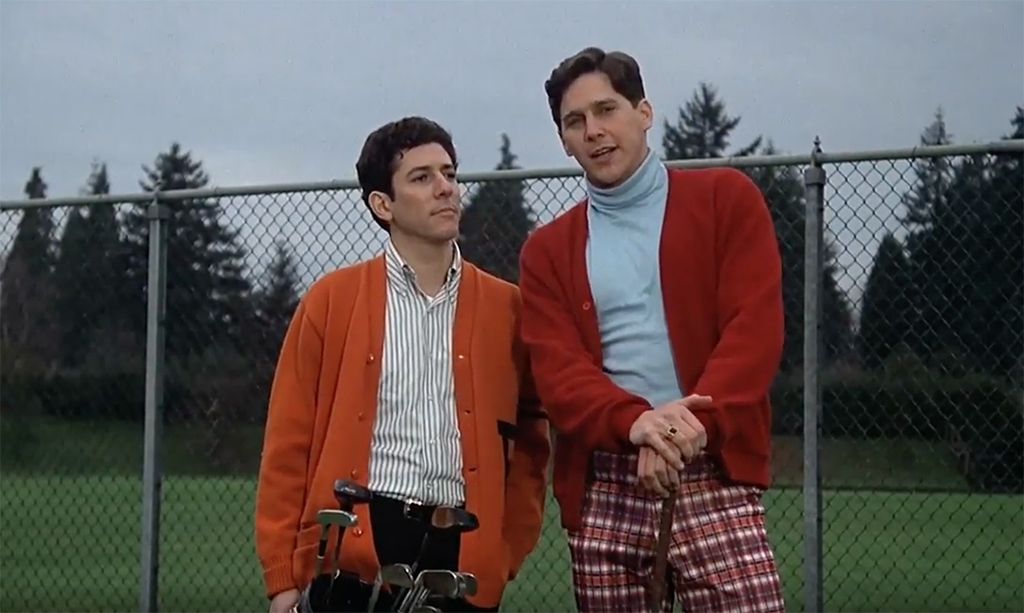
What people think it means: to do something frequently.
What it actually means: to do something consistently.
Example: “Charles and I play golf regularly. We have a standing appointment at the club for the first Monday of every month.”
26
Adverse

What people think it means: averse; opposed to.
What it actually means: Unfavorable, contrary, or hostile.
Example: “They sailed in the most adverse of conditions, but they still made it to shore.”
27
Complement

What people think it means: compliment; a polite expression of praise or admiration.
What it actually means: to add to something in a way that enhances or improves it; make perfect.
Example: “That handbag really complements your dress.”
28
Chronic

What people think it means: acute; severe.
What it actually means: persisting for a long time or constantly recurring.
Example: “Sally always carries an inhaler around with her to deal with her chronic asthma.”
29
Dilemma

What people think it means: a problem.
What it actually means: a situation in which a difficult choice has to be made between two or more alternatives, especially equally undesirable ones.
Example: “Robert is in love with his mistress but doesn’t want to leave his wife; it’s quite the dilemma.”
30
Inflammable

What people think it means: incapable of catching fire; the opposite of flammable.
What it actually means: in one of the most confusing turns of the English language, flammable and inflammable mean the exact same thing. In both case, it indicates something can easily catch fire.
Example: “You better not wear that bra near an open flame. It looks highly inflammable.”
To discover more amazing secrets about living your best life, click here to sign up for our FREE daily newsletter!